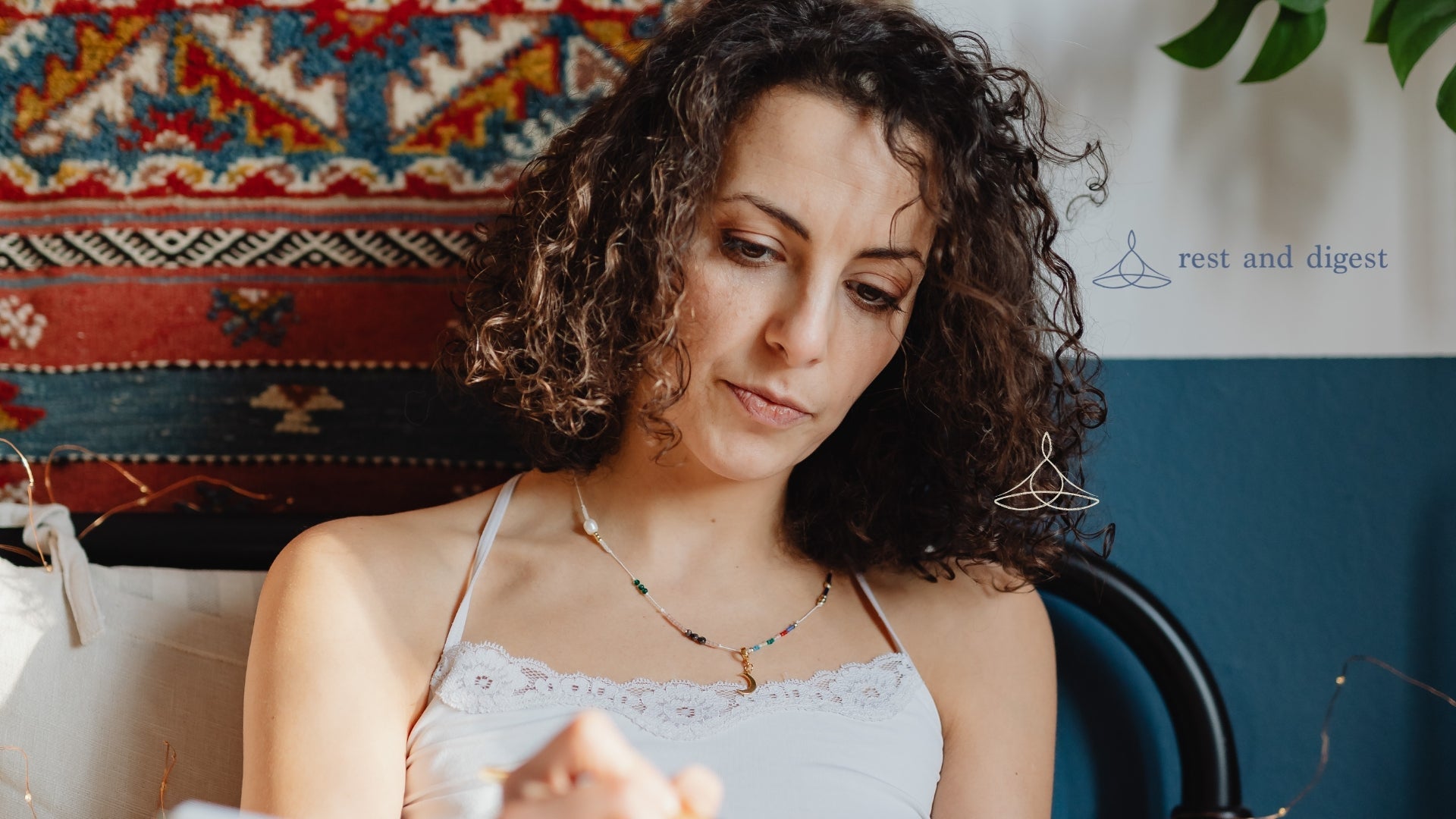
What It Really Means To Be Kind To Yourself
In a world that’s all about achievement, comparison and non-stop productivity being kind to yourself can seem like a luxury – or even a weakness. But self-kindness is far from being self-indulgent. It’s a vital practice that gives you emotional wellbeing, mental clarity and a healthier relationship with yourself and others.
So what does it really mean to be kind to yourself? And how can you start to embody this compassionate mindset in your daily life? Below are some actionable self kindness ideas.
Being Kind To Yourself?
Being kind to yourself means treating yourself with the same compassion, understanding and patience you’d offer a close friend. It means accepting your flaws, forgiving your mistakes and prioritising your well-being – not just physically but mentally and emotionally.
Self-kindness isn’t about lowering your standards or avoiding responsibility. It’s about giving yourself grace during hard times, recognising your worth regardless of your achievements and acknowledging imperfection is part of the human experience.
Why It Matters More Than You Think
When you’re stuck in a cycle of self-criticism and pressure, it eats away at your mental health and drains your energy. Being kind to yourself changes that dynamic. It helps you manage stress better, strengthen your relationships and stay motivated without burning out. Far from being a weakness, it’s a sign of emotional maturity and inner strength.
How Can You Be Kinder To Yourself?
Practice Self-Compassion
Self-compassion means being kind and understanding towards yourself, especially when you mess up or struggle. It’s acknowledging your pain without judgment and knowing everyone struggles sometimes. Try replacing harsh self-talk with kinder words like “I’m doing my best” or “It’s okay to not be okay.”
Take Care Of Your Body
Being kind to your body is part of being kind to yourself. This means nourishing your body with good food, getting enough sleep, exercising regularly and listening to what your body needs. Treating your physical body with respect can boost your mood and self-worth.
The Rest and Digest Yoga Bundle—with Jute Mat, Carry Strap and Cork Blocks—is a beautiful way to start honouring your body through gentle movement and mindful stretching. It’s the perfect foundation for a more grounded and nurturing wellness routine.
Set Boundaries To Protect Your Energy
Boundaries are not walls—they’re self-respecting choices. Whether it’s saying no to something that drains you or limiting time with toxic people, setting boundaries helps protect your energy and keep you emotionally balanced. It’s a powerful act of self-kindness that stops you from overextending yourself.
Practice Mindfulness
Mindfulness means being present without judgment. It helps you tune into your thoughts and emotions without getting overwhelmed by them. Practising mindfulness—even for a few minutes a day—can ground you, reduce reactivity and create space for self-awareness and calm.
The Queen B Mindfulness Kit, with beeswax candles and a brass beehive holder, creates a peaceful atmosphere for your mindfulness rituals. Whether you’re meditating or just slowing down, it’s a tactile and beautiful reminder to breathe and be present.
Make Time For Self Care
Self care isn’t just bubble baths and spa days (though those are great, too). It’s anything that refills you: journaling, reading, gardening, listening to music or just resting. Find what brings you peace and make time for it without guilt.
Skin care is one form of self care that connects you to your body. Check out The Base Collective or Hayo’u products which are formulated with natural ingredients to nourish and restore your skin. The textures and scents turn everyday routines into moments of calm and self-love.
Even simple acts like sipping a warm cup of Love Tea Organic Sleep Tea, blended with calming herbs like chamomile and lemon balm, can calm your nerves and ground your senses. It’s a gentle way to tell your body it’s time to rest and recharge.
Surround Yourself With Positive People
Being kind to yourself also means choosing relationships that uplift you. Spend time with people who respect, support, and encourage you. Avoid those who belittle you or make you question your worth. Positive social connections reinforce self-belief and emotional security.
Forgive Yourself
Everyone makes mistakes—it’s part of being human. Holding onto guilt or shame only prolongs your pain. Learning to forgive yourself is a transformative act of self-kindness/ Reflect on what happened, accept responsibility, make amends if needed and give yourself permission to move forward.
What Are The Benefits Of Being Kind To Yourself?

Improved Mental Health
Self-kindness can dramatically reduce symptoms of anxiety and depression. When you treat yourself with care and compassion, your internal dialogue becomes more supportive, which in turn improves your overall emotional health.
Increased Self-Esteem
When you stop tearing yourself down and start affirming your value, your confidence grows. You begin to see yourself not as someone who must constantly prove your worth, but as someone who is already enough.
Better Relationships
People who are kind to themselves are more likely to build healthy relationships. When you feel secure within yourself, you’re less likely to rely on others for validation and more likely to connect from a place of authenticity and mutual respect.
Reduced Stress And Anxiety
Self-kindness activates the body’s relaxation response. It eases the pressure to be perfect, allowing you to navigate challenges with a calmer and more resilient mindset. This reduces the toll that chronic stress can take on your mind and body.
Increased Resilience
Life is full of ups and downs. People who practise self-kindness are better equipped to bounce back from setbacks. They view failure as a learning opportunity rather than a reflection of their worth, which helps them persevere through tough times.
How Can You Overcome Barriers To Being Kind To Yourself?
Identify Negative Self-Talk
Many people don’t even realise how unkind they are to themselves. Start by paying attention to your internal dialogue. Notice when you’re being critical or dismissive of your feelings. Awareness is the first step toward change.
Challenge Your Inner Critic
Once you identify negative thoughts, challenge them. Ask yourself: “Would I say this to a friend?” If not, why say it to yourself? Replace self-criticism with constructive positive encouragement. Over time, your inner voice can become a source of strength rather than sabotage.
Don’t Be Afraid To Ask For Help
You don’t have to do it alone. Whether it’s through therapy, support groups or just talking to someone you trust reaching out can help you get perspective – and maybe even hear the kind words you need to say to yourself.
Practise Gratitude
Gratitude shifts your focus from what’s lacking to what’s already present and good. Start a daily gratitude journal, listing things you appreciate about your life—and yourself. This simple habit can rewire your brain to notice positive patterns and foster a kinder mindset.
Try a Leuchtturm1917 Bullet Journal or a Bespoke Letterpress Gratitude Journal to turn your reflections into a meaningful and uplifting routine. Find inspiring tips about how to go about writing a bullet journal here.
Self-kindness isn’t just a nice idea – it’s a daily habit that strengthens your mind, body and heart. It’s choosing, over and over again, to be patient, respectful and loving towards yourself. Not because you’re perfect – but because you’re human.
When you start treating yourself like you treat others your whole life changes. Next time you catch yourself being too hard on yourself or overwhelmed – pause – and choose kindness instead.





